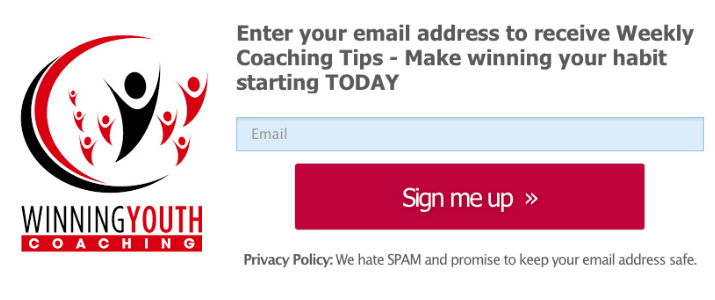January 30, 2018
WYC 140 – Player feedback – Ian Goldberg talks goal setting and the feedback loop

Ian Goldberg is the Founder and CEO of iSport360, Inc. a SportsTech venture that helps youth sport coaches and parents share objective player feedback. As a sport parent and coach, Ian has witnessed the chaos on the sidelines and in the bleachers when coaches’ and parents’ expectations are not aligned….and the kids suffer. His company has developed a solution to the pain in the form of an app and an informative (and frequently humorous) newsletter “The Chaotic World of Youth Sports”.
Listen Now:
Listen on iTunes: iTunes link
Listen on Stitcher: Stitcher link
Listen on Google Play Music: Google Play link–
–
The feedback loop
- Ongoing feedback is way more effective than end-of-the-year feedback
- Regular feedback is important, but can be time-consuming. Ideally coaches should be able to spend a few minutes and quickly evaluate and provide feedback to all players
Objective goals
- It’s easy to just look at how many points/goals players score, but most coaches are trying to evaluate many things beyond just scoring. The key is to define measurable objectives of what you are trying to improve in players.
Empowering kids
- Ideally kids should be able to:
- Talk to the coaches themselves
- Set their own goals
What happens in a parents’ brain when watching their kids play sports
- Fight or flight mode – Parents’ stress levels and cortisol levels are skyrocketing when being on the sideline watching their kids
Parents are either part of your process or part of your problem
- Involve them – they want to know what’s going on, regardless of age
- A good way to base how much parents are involved – how much money they are spending. So for cheap low-level rec sports, not as much. For high-level travel teams costing thousands of dollars – the parents should be communicated with more.
iSport360 – The feedback loop
- Mobile app – Coaches can work with players to set goals at beginning of season and allows the coach to provide feedback
- Parents can also send other players on the team positive emojis
- Weekly newsletter with funny stories
Best Stolen Idea
- Barbara Corcoran from the Shark Tank: ‘To be successful, you have to have a certain level of stupidity, so that when you keep getting knocked down, you continuously get back up, expecting better results.’
Parting Advice
- Don’t let sports take over your life. Enjoy it and keep it in perspective.
—
Reviews are the lifeblood of the podcast!- If you like the podcast- please take 2 minutes to write a review! Click here
–
Ready to be an Awesome Youth Coach? Sign up for our free weekly newsletter:
SaveSave

